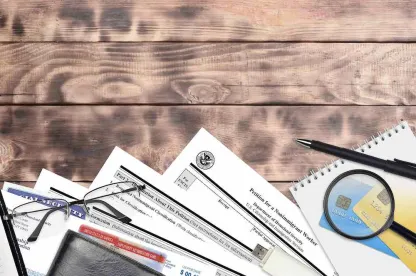In a consequential policy reversal, the Department of Homeland Security entered into a settlement agreement following a lawsuit regarding validity of L-2 and H-4 Employment Authorization Document (EAD) cards. U.S. Citizenship and Immigration Services (USCIS) will soon allow automatic extensions of employment authorization, in certain circumstances, while an EAD renewal application has been filed and is pending with USCIS for H-4 and L-2 spouses. In addition, after 120 days USCIS will change its statutory interpretation and afford employment authorization incident to status for L-2 spouses.
Background
L-2 nonimmigrant spouses (married to L-1 nonimmigrant visa holders) are eligible to apply to USCIS for an EAD. In certain circumstances, H-4 nonimmigrant spouses (married to H-1B nonimmigrant visa holders) are also eligible to apply to USCIS for an EAD. Once issued, the EAD provides unrestricted work authorization.
L-2 and H-4 spouses who have an EAD card may apply to USCIS to renew their EAD, but can only apply for an extension when their current EAD is within 180 days of expiration. For the past few years, USCIS processing of EAD applications has been dramatically delayed, sometimes taking 11-12 months to process. The result has been the loss of work authorization for these individuals, typically for periods of several months.
Settlement Agreement
On November 10, 2021, the Department of Homeland Security (DHS) agreed to make critical and long-awaited changes as part of its settlement in Shergill, et al. v. Mayorkas, the class action litigation brought by H-4 and L-2 spouses suffering from these long-delayed processing times and the resulting loss in work authorization.
Specifically, USCIS will provide the following benefits:
Automatic Extension of EADs
H-4 and L-2 spouses:
USCIS will soon issue guidance so that an H-4 or L-2 nonimmigrant will qualify for automatic extension of his/her valid EAD for 180 days beyond the date of the EAD expiration if the nonimmigrant spouse:
-
Properly files a Form I-765 EAD renewal application to USCIS before the current EAD expires; and
-
Continues to maintain H-4 or L-2 status beyond the expiration of the existing EAD as evidenced on Form I-94.
The validity of the expired EAD will be extended until the earliest of:
-
180 days following the EAD expiration;
-
The expiration of the H-4 / L-2 nonimmigrant’s I-94 record; or
-
When a final decision is made on the EAD extension application by USCIS.
For I-9 purposes, an H-4 or L-2 employee may present: a facially expired EAD indicating Category C26 or A18; Form I-797, Notice of Action for Form I-765 with Class requested indicating (c)(26) or (a)(18) and showing that the I-765 EAD renewal application was filed before the EAD expired; and an unexpired I-94, showing valid H-4 or L-2 nonimmigrant status.
L-2 spouses will be granted work authorization pursuant to status.
Within 120 days, USCIS will issue policy guidance providing that L-2 spouses are employment authorized incident to status, meaning that a separate Form I-765 EAD application will not need to be filed to obtain work authorization, and that the L-2 spouse is authorized to work upon being admitted to the United States. USCIS, in cooperation with CBP, will change Form I-94 to indicate the individual is an L-2 spouse so that the I-94 can be used for I-9 purposes.
In the meantime, L-2 spouses will qualify for an automatic extension of their valid L-2 EAD for 180 days beyond the date of the EAD expiration, as described above.
This policy change represents a significant benefit to H-4 and L-2 employees, as USCIS delays have resulted in a loss of work authorization and a disruption to employment.





 />i
/>i

